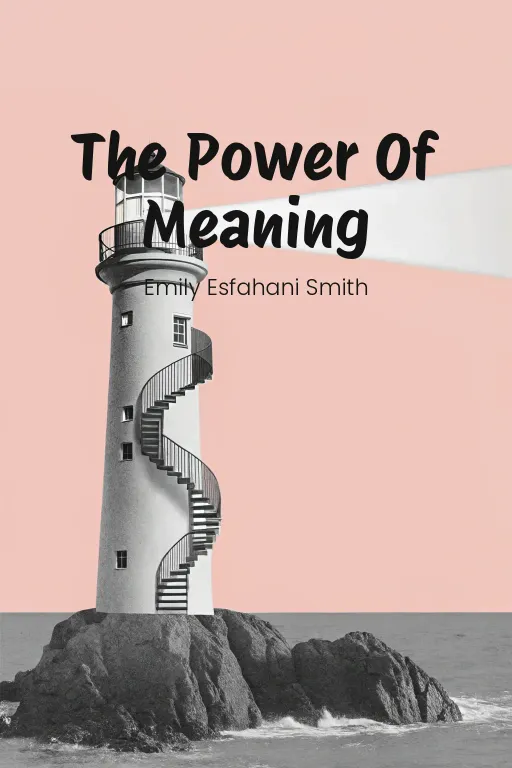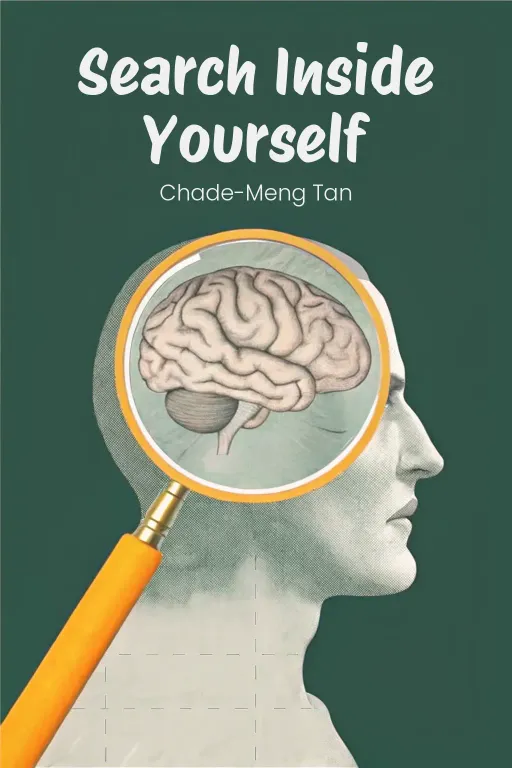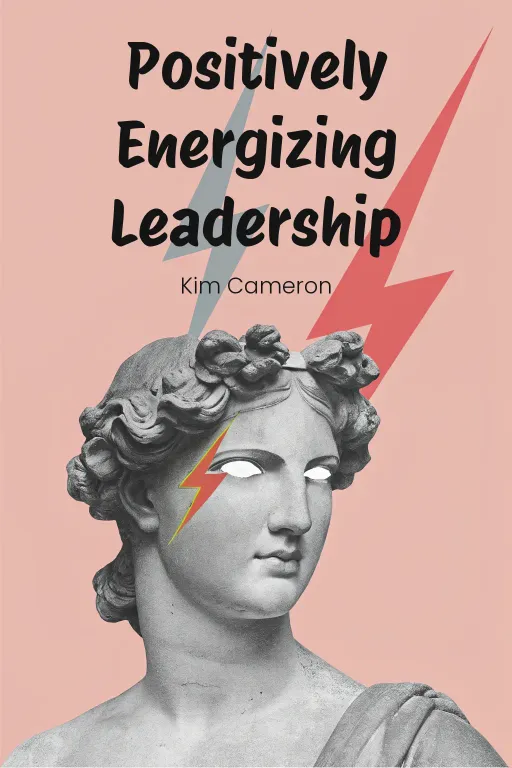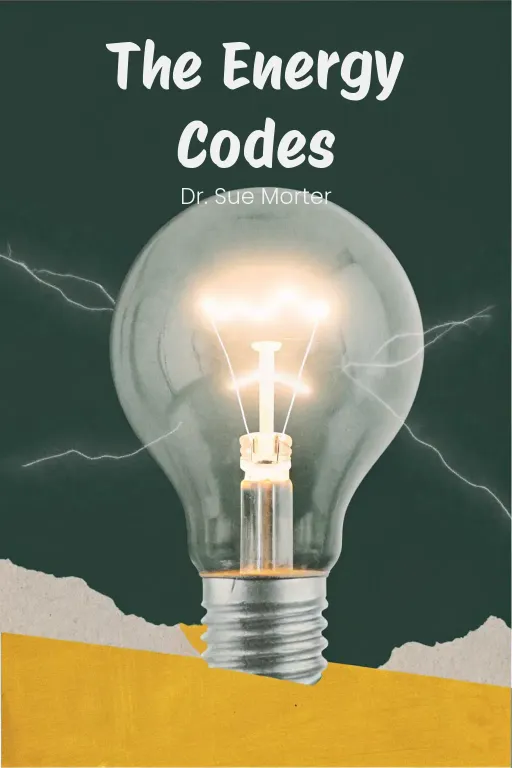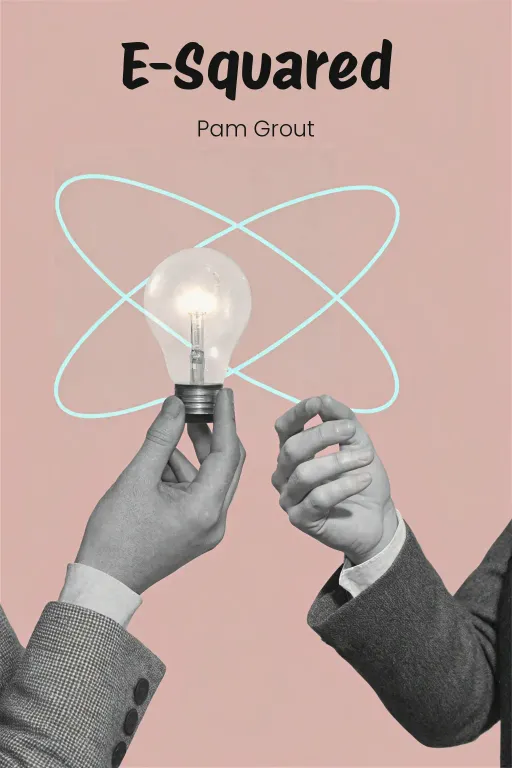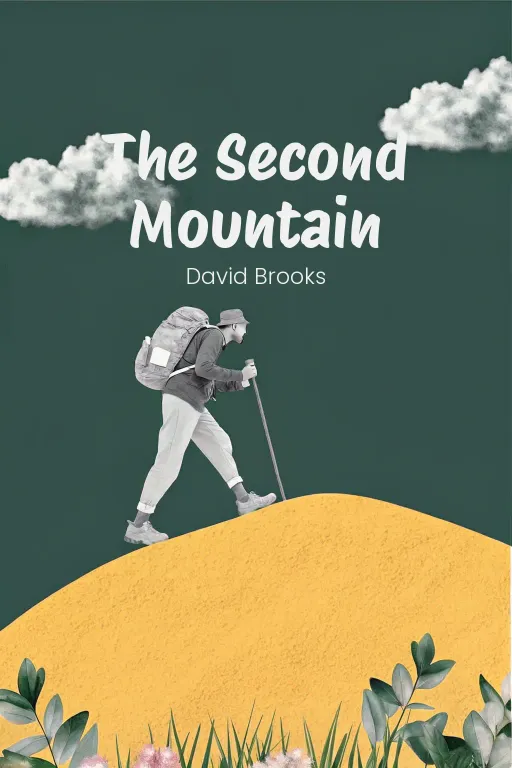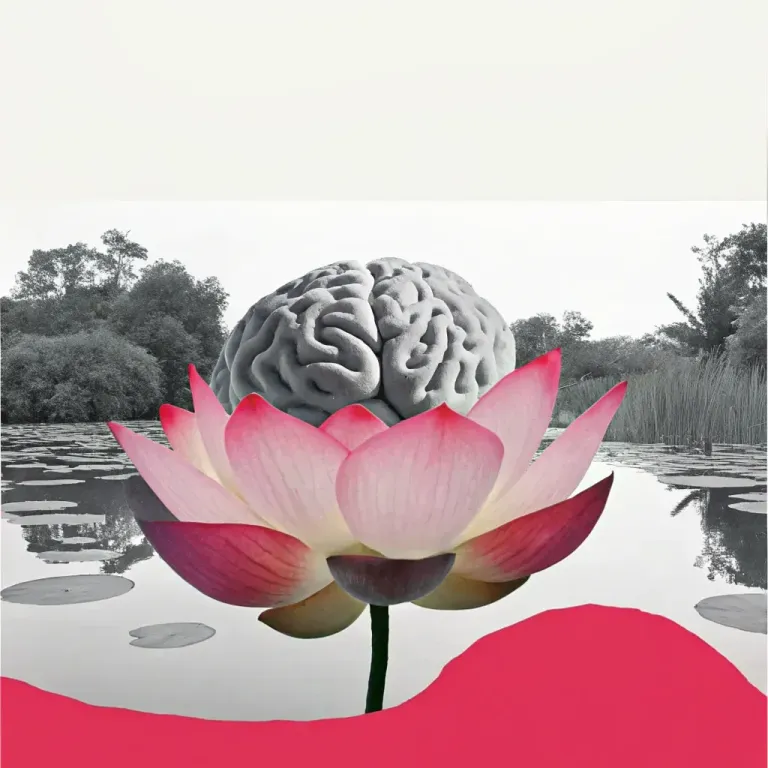
EQ Upgrade: Master Your Emotions
Podcast by The Mindful Minute with Autumn and Rachel
The Unexpected Path to Achieving Success, Happiness (and World Peace)
EQ Upgrade: Master Your Emotions
Part 1
Autumn: Hey everyone, welcome to the show! Today, let's talk about something that sounds almost too good to be true: a workplace where you're not just chasing targets or churning out code, but actually understanding yourself, connecting with your colleagues, and finding genuine, lasting happiness. Rachel: Happiness at work, huh? Sounds like a recruiting brochure. What's the real deal here? There's gotta be a downside. Autumn: No downside, Rachel, at least not that I can see! That's the vision of Chade-Meng Tan in his book, “Search Inside Yourself”. He blends all the latest neuroscience with ancient mindfulness practices, to give us a real roadmap to emotional intelligence. It actually started as a program at Google, and it's all about transforming people—and maybe even society—using things like self-awareness, empathy, and compassion. Rachel: Okay, so we're talking mindfulness, brain science, and, you know, those soft skills. Fine. But how do you go from being a little less stressed at your desk to, solving world peace? That's a bit of a stretch, isn't it? Autumn: Agreed. That's why we're going to break down three key areas from the book today. First up, how mindfulness is the foundation for emotional clarity. It's like cleaning the lens, the eyeglasses through which you see the world. Rachel: A mental de-fogger, I get it. Autumn: Exactly! Second, we'll look at the very practical benefits of emotional intelligence, how it improves your relationships, and how it can actually help you get ahead in your career. Rachel: So, emotional intelligence isn't just some HR buzzword but it has tangible benefits? Autumn: Precisely. And third, let's explore how cultivating compassion can extend this internal transformation outward, leading to a more connected and harmonious world. It’s like mindfulness starts with us, then ripples out to everyone we interact with. Rachel: A ripple effect, huh? So, do I need to be on my way to becoming the next Dalai Lama by the end of this podcast? Autumn: Not at all. But you will walk away with some concrete tools to seriously upgrade your mindset and your heart. Shall we dive in? Rachel: Alright, Autumn. Let's see if this roadmap towards happiness is legit. I remain cautiously optimistic.
Mindfulness as the Foundation
Part 2
Autumn: Okay, Rachel, let's get started with the basics. We're talking about mindfulness, which, according to “Search Inside Yourself”, is absolutely crucial. Think of it as tuning your internal instruments. Without it, emotional intelligence is useless, like trying to play an out-of-tune piano. Rachel: So, tuning my mental piano, is it just an app, or occasional meditation? Autumn: Nope, it's not just about sitting still and chanting. Mindfulness is intentionally focusing on the present, with curiosity and without judgment. It “really” boosts self-awareness. You start to see your emotional state before it takes over. Rachel: Okay, so instead of "zoning out," you're hyper-aware of your emotions? Like when your boss emails you at 8 pm and you start to get angry? Autumn: Exactly! Attention is our “instrument of emotion.” Once you focus on recognizing your reactions, then frustration or anxiety becomes manageable. Rachel: But, how? Can't just tell someone, “Focus on your anger!” Any tips? Autumn: Of course. One interesting trick is "emotional labeling". Studies show by naming the emotion—like saying, “I feel angry,”—you actually activate your brain’s prefrontal cortex, the brain’s emotion regulator, and then it decreases brain activity in the amygdala, the part responsible for fear and fight-or-flight response. Rachel: So, will naming the anger help reduce it? “Hello, Anger--you've made yourself at home”? Autumn: Exactly! When you label emotions, even silently, the brain shifts and you can choose a proper response. Imagine navigating a crowded room. Mindfulness is turning on the lights so you can see. Rachel: Makes sense. But when emotions hit hard it's hard to catch yourself in real life. Autumn: That's where simple practices come in, such as mindful breathing. The book suggests pausing, even a breath or two, when you feel that emotion rise. Focusing on your breath will calm your nervous system, so your brain can switch from reaction to reflection. Rachel: What if you are in a stressful environment, such as a meeting or an unexpected call from your kids school? It's not like you can step out and meditate. Autumn: Absolutely, but even there, a two-minute break can make a difference. Someone in the book sat outside a conference room and focused on their breath. By the time they walked in, they were focused and ready. Rachel: So, these pause-and-breathe moments, like mini reset buttons? Autumn: Exactly. Another practice is a body scan meditation, which involves paying attention to sensations throughout your body. It shows how emotions show up physically, like tightness in your chest or tension in your shoulders. Once aware, you can address them before they get worse. Rachel: Don’t emotions just hit you before you realize it? By the time I know I’m mad, I’ve sent an angry text. Autumn: That’s why mindfulness emphasizes catching those signals early. It's creating a gap between stimulus and response. When things escalate quickly, try Siberian North Railroad—or SBNRR. Rachel: SBNRR? Sounds like a train schedule. Autumn: It’s Stop, Breathe, Notice, Reflect, Respond. Imagine in the middle of an argument, and someone makes a comment that hurts. Stop. Do not react just yet. Breathe—bring your attention back, and take a few calming breaths. Rachel: Okay, so far so good. Autumn: Then, Notice—what is happening inside? Are your shoulders tense? Is your heart racing? And, what emotions are you feeling? Then, Reflect—what triggered it? Why do you feel like this? Lastly, Respond—now that you’re calmer, decide how to act intentionally instead of lashing out. Rachel: Great. Give me a real-world example. Autumn: This book mentions Derek, who had a tough situation. His mom made a decision regarding his daughter that he thought was irresponsible. He felt angry, and wanted to yell at her. Instead, he stopped, breathed, noticed the anger, and reflected. He realized she acted out of care, not carelessness. When he responded, it was calm and empathetic. Rachel: So he avoided making Thanksgiving uncomfortable for everyone? Impressive. Autumn: That’s the beauty of mindfulness. You see the deeper context, and respond based on values. You not only change conflict, but also deepen relationships. Rachel: Trust and deeper relationships are expected of a two-minute breathing hack? Autumn: It seems small, but these practices add up. These habits rewire how you approach challenges. A lot of them, such as mindful walking or eating, can fit into everyday life. Rachel: I see, so mindful eating is putting down your phone and enjoying the taste of your food instead of inhaling it? Autumn: Exactly. It’s being fully present in even regular tasks. When you walk or eat mindfully, you’re not just going through the motions. You’re developing focus, and calm your mind. You practice gratitude, which sharpen emotional intelligence. Rachel: So mindfulness isn't carving out meditation time, but weaving small practices into your day. Autumn: Exactly. It’s a toolkit, not a one-time fix. Mindfulness creates the mental clarity, and emotional regulation which is the basis of all the skills we're going to discuss in emotional intelligence. Rachel: Okay, Autumn, sure, mindfulness is great. I don’t know about meditating during morning coffee, but it will be powerful to step back, breathe, and notice what’s happening. Autumn: That’s all you need—a beginning. Even the simplest mindfulness practice can transform how you act with yourself, others, and your environment.
Emotional Intelligence and Its Benefits
Part 3
Autumn: So, building on what we've discussed so far, let's dive into emotional intelligence, and how we can actually develop it and use it every day. Now, EI isn't just about, you know, being mindful. It's really the total package of skills that help us understand and manage emotions, both our own and those of others. Thinking of mindfulness as the foundation, we'll explore the different aspects of emotional intelligence, its benefits, and how to actually cultivate it in different situations. Rachel: Alright, Autumn, so if mindfulness is the foundation, like you said, our mental windshield wiper, what exactly “is” emotional intelligence? It sounds, I don't know, a bit like one of those corporate buzzwords that everyone throws around. Autumn: I totally get why you'd say that. But, honestly, EI is more than just a buzzword. It’s basically the ability to recognize, understand, manage, and even influence emotions. It allows us to respond thoughtfully instead of just reacting impulsively, to build real connections with people, and even to lead with empathy and make a real impact. The cool thing is that while IQ is pretty much set in stone, emotional intelligence can be learned! It’s a skill you can actively improve. Rachel: Learnable, huh? So, we're talking about self-improvement, but specifically focused on emotions? What's the breakdown here? How do we make EI less abstract and more, you know, practical? Autumn: That's a great question. EI is actually structured around five key areas: self-awareness, self-regulation, motivation, empathy, and social skills. Let's start with self-awareness – it really is the base for everything else. I mean, if you're not aware of your own emotions, how can you possibly manage them or understand what others are feeling? Rachel: Right, so self-awareness is like being able to step outside yourself and see the storm brewing in your head before it starts raining on everyone else? Autumn: Exactly! Think about a situation where a colleague criticizes your work. Self-awareness means being able to say to yourself, "Okay, I'm feeling defensive right now," instead of just snapping back or shutting down. You can identify the emotion without letting it control your reaction. Rachel: I see the logic, but recognizing emotions isn't always easy, right? I mean, if I'm in the middle of a stressful situation – say, my boss is calling me out in front of the team – I'm probably just getting angry or going silent, not exactly doing an emotional analysis. Autumn: Absolutely, Rachel. But that's where practice comes in. One tool that works well is journaling. At the end of the day, you can think back on situations where you felt strongly and try to identify any underlying patterns. This can help you catch those emotions as they're happening, before they take over. Rachel: Alright, fair enough. So, we've caught the emotion… then what? Autumn: That leads us to self-regulation. This is about being able to pause, evaluate, and then consciously choose how you're going to respond. There's a great example from the "Search Inside Yourself" program, where someone struggled with anger at work. With mindfulness training, he started noticing physical signs – tight shoulders, clenched fists – before the anger “really” hit. Eventually, he learned to calm himself down in the moment. Rachel: Okay, so it's like stopping a train before it derails. But let's take it outside the corporate world. Say someone's dealing with family drama, how does self-regulation work there? Autumn: Sure. Imagine a really tense family discussion about, I don't know, politics. Your first impulse might be to react emotionally, to jump in and argue. But self-regulation is about hitting pause. You can excuse yourself for a moment, take a few breaths, and then come back with a calmer, more thoughtful response, instead of just adding fuel to the fire. It's not about suppressing your feelings, it’s about steering them towards a solution instead of more conflict. Rachel: Alright, avoiding Thanksgiving chaos – that's useful, for sure. What's next on the list? Motivation? Autumn: Yes, but specifically, intrinsic motivation - the kind that comes from within, from your own passion, curiosity, or sense of purpose, not from external rewards like bonuses or recognition. And optimism is “really” important here. The book mentions a study of insurance agents, where those with a positive attitude sold 31% more in their second year than those who were more pessimistic. That's a huge difference, and it's directly linked to how well they handled their emotions. Rachel: Interesting. So, motivation isn't about blasting a motivational playlist, but more about developing a generally optimistic way of thinking? Autumn: Exactly. Optimism gives you the strength to keep going. When you face setbacks, a motivated person will reframe the situation. They don’t see themselves as failures; they see it as a lesson or a stepping stone. They’re focused on the long-term goal, not just immediate gratification. Rachel: Got it. But emotional intelligence isn't just about what's going on inside your head, it's also about how you interact with other people, right? That's where empathy comes in. Autumn: Precisely. Empathy is the bridge between self-awareness and understanding others. It's about truly understanding how others are feeling, not just seeing their behavior, but “really” connecting with their emotions. Leaders who are empathetic tend to build trust, because they're genuinely interested in their teams and understand their challenges and needs. Rachel: Give me a real-world example of empathy in action – something outside the tech world. Something in a tougher situation, like during a crisis. Autumn: There's a great example of leadership from Gerald Grinstein, the CEO who guided Delta Airlines through a difficult period. He didn't just take a top-down, authoritarian approach. Instead, he met his employees where they were, emotionally. He listened to their concerns, acknowledged their struggles, and showed that he genuinely cared about them as people. This didn't just improve morale, it helped rebuild trust and encouraged collaboration across the entire company. Rachel: So, empathy isn't just being soft – it's actually effective. But what about situations where you need to find a balance, like being empathetic but still making tough decisions that might not be popular? Autumn: That's where the final area, social skills, comes in. Social skills are about being able to connect with people. For leaders, it means knowing when to listen and when to stand firm. It's about combining empathy with perspective, making sure that your emotional connection enhances your decision-making instead of hindering it. Rachel: I like that balance. But what do social skills look like for the rest of us, not just CEOs? Autumn: In everyday interactions, strong social skills mean you're able to communicate effectively. For example, if there's a misunderstanding with a friend, someone with good EQ will avoid getting defensive. Instead, they'll try to clarify the situation together, without making emotions worse. It all goes back to managing relationships in a positive way. Rachel: Alright, fair point. You've got me thinking – this isn't just about professional success, these skills are pretty universal. Autumn: Exactly! Emotional intelligence affects every aspect of your life – how you relate to yourself, to others, and to the world around you. And like mindfulness, it's a skill you can develop, which means anyone can improve it.
Compassion as a Path to Global Peace
Part 4
Autumn: So, after laying the groundwork with emotional intelligence, it's only natural to talk about its wider effects on how we feel, and how we get along as a society. Now, we're at the last, and perhaps most impactful, part: seeing compassion as a way to world peace. This last piece “really” broadens the scope to talk about how we can all make a difference together, showing how being compassionate and aware can lead to a more peaceful world. Rachel: Emotional intelligence leading to world peace — no biggie, right? Autumn, can you break down how we go from taking a breath to calm down to global harmony? It sounds like a bit of a leap. Autumn: That's completely fair, Rachel. The book basically says that compassion acts like a multiplier—it takes the effects of being mindful and emotionally intelligent and spreads them to our families, workplaces, and communities. It begins with each of us being more mindful, grows as we become more empathetic, and then expands outward through acts of compassion. Rachel: Okay, so it’s like setting off emotional dominoes? If enough individuals are affected, society will topple into a state of kindness? Sounds good in theory, but where do we start? Autumn: Let's begin with the individual. Being mindful through practices like meditation or focused breathing, don't just help regulate emotions—they help us connect and empathize with others. The book talks about a Google employee who was all about logic and kept his distance. But that changed when he started actively listening to others. Instead of just reacting, he paused, and that helped him “really” connect with his colleagues. This not only helped him personally but also made the team work better and feel more positive. Rachel: So, one person deciding to be nice to his colleagues improved the whole team? I can see that on a small scale, but how do we get that to spread wider? Autumn: That's the beauty of the ripple effect. When you're self-aware and compassionate, you encourage others to be the same. For example, a manager who understands her team's frustrations during a stressful project, while still expecting them to do their best, creates a work environment where people feel valued and treated fairly. Rachel: So, compassion isn’t just being nice—it’s a strategic move. I bet there are some real-world success stories here? Autumn: Absolutely. Take Gerald Grinstein, the former CEO of Delta Airlines. He had a tough job—trying to keep everyone positive when the company was in financial trouble. Instead of scaring people or being bossy, he “really” listened to his employees, showed that he cared, and made sure they knew he understood even when he had to make difficult choices. This not only kept the company from falling apart but also rebuilt trust among the staff, which helped Delta recover. Rachel: So, an airline CEO decides to have heartfelt conversations with employees during a crisis, and that turned things around? Can compassion “really” have that big of an impact, or did he just get lucky? Autumn: It’s more than luck. Compassionate leadership builds trust, which leads to people being more involved and working better together. Those are essential for getting through any crisis. Employees are more likely to support you and give their all when they know their leaders truly care about them. Grinstein’s story shows that even in tough times, empathy can lead the way. Rachel: Okay, so leaders can—and should—be compassionate. But what about the rest of us? I’m not running a Fortune 500 company. How does this work for, say, baristas or teachers? Autumn: For individuals, it’s about doing small acts of kindness and being mindful every day. The book suggests starting with simple things: greeting people warmly, “really” listening when someone is talking to you, or being patient when things get stressful. Think of these as planting seeds of goodwill. Over time, these seeds grow into stronger, more connected communities. Rachel: Small seeds, huh? So, smiling at strangers on the subway is officially doing my part? Autumn: Surprisingly, yes! It might seem minor, but studies show that doing kind things improves not only your mood but also everyone else's around you. It's these little interactions that prepare us for bigger moves toward working together and understanding each other. For example, when someone is emotionally generous—by not saying something angry or being patient—it encourages others to do the same. Rachel: I see the point, but "inner peace for outer harmony" still feels kind of abstract. What actually links compassion to measurable change globally? Autumn: It starts with individuals showing their values, but it also requires integrating these values into our systems. The book compares meditation to medicine—both started as personal practices but became global as science proved their benefits. Research now confirms that meditation changes your brain, reducing stress and helping you control your emotions. The idea is to include mindfulness and compassion in schools, workplaces, and government to make an even bigger impact. Rachel: So, we treat compassion like a public health initiative? We teach meditation alongside giving vaccinations and providing clean water? Autumn: Exactly! Just like public health initiatives changed the world, teaching people to be compassionate and mindful at work or in schools could greatly improve emotional health on a large scale. Even small changes, like encouraging mindful emailing or training teachers in emotional intelligence, can have a big impact. Rachel: Mindful emailing again? Fine, I’ll admit pausing before replying to an email in all caps might save a few friendships. But can compassion “really” bridge big divides, like political conflicts or cultural differences? That’s a big jump. Autumn: It’s ambitious, but not impossible. The book reminds us that compassion connects us as humans—it focuses on what we all share, not what makes us different. Even something as simple as a Loving Kindness meditation, where you wish well for everyone—friends, strangers, even enemies—can help us empathize with others. These practices help us see others as people first. Rachel: Wishing my “enemies” well during meditation... That’s a tough one! Autumn: I understand, but science supports it. Studies show that compassion-focused meditation actually changes your brain, making you more empathetic and less biased. If enough people do these practices, it could shift our culture—making empathy the norm, not the exception. Rachel: So, world peace starts with me sitting on the couch, breathing and thinking happy thoughts? It still feels a bit out there. Autumn: I get it, but think of it this way: Gandhi’s idea of "Be the change" is more important than ever. Compassion might seem small at any given moment, but those moments add up. Start with one breath, one kind act, and keep building. Compassion might not solve all the world’s problems on its own, but it’s essential for finding lasting solutions. Rachel: Alright, Autumn, you’ve convinced me about the ripple effect. Even if it means I need to start emailing more mindfully. Let’s see if these ripples can actually create the kind of changes this book talks about.
Conclusion
Part 5
Autumn: So, to bring it all together, we've seen how mindfulness, emotional intelligence, and compassion are interconnected. They not only boost our own lives but can also spark bigger changes in society. Mindfulness helps us stay present and aware, emotional intelligence helps us handle relationships and challenges, and compassion? Well, it takes those practices and spreads them outward, building trust and collaboration, and maybe even contributing to a more harmonious society. Rachel: It’s a lot to take in, isn't it? From simply naming your emotions to rethinking how you interact with people, the idea here is that small, intentional changes - like simply pausing to breathe or choosing to lead with empathy - can really have pretty big impacts. And you know, while I'm still a bit skeptical about fixing the world just by being mindful with my emails, I can definitely see how these tools can help make tough situations a little easier to manage. Autumn: Precisely! It's not about aiming for perfection or solving every problem instantly—it's all about making progress, bit by bit. So, really, the key takeaway here is: start small. Maybe try taking a mindful breath before you react to something, or take a moment to “really” connect with someone today. Over time, these small, individual shifts can really add up to create a pretty significant collective change, wouldn't you say? Rachel: Alright, small steps it is. I suppose I could start by just noticing my reaction the next time my WiFi cuts out. Baby steps towards enlightenment, right? Autumn: Exactly! That's all it takes, really. One breath, one step, one mindful moment at a time. And who knows? Those little ripples might just end up making a much bigger difference than you would have ever expected.



